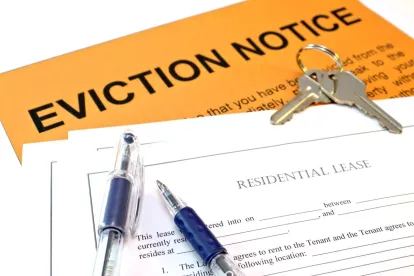COVID-19 took many, many things, changed many other things, and brought a lot of new things. One of the new things COVID-19 brought was a whole host of lease disputes. Lease disputes – usually, but not always, tenants looking for a way out of a lease – are always a part of the legal landscape, but the frequency and creativity of lease disputes have been accelerating as of late. As such, we’ll spend a little time in our next few posts on lease matters. Today, we’ll look at a common area for lease disputes: real property taxes.
Real Estate Taxes In Leases
It’s a common feature of commercial leases – and is a necessary ingredient of a “triple net” lease – for the tenant to pay all real estate taxes associated with the leased premises. In RME Management, LLC v. Chapel H.O.M. Assocs., 251 N.C. App. 562 (2017), a commercial lease required – again, as is common – as follows with regard to tenant’s payment of real estate taxes: “The Lessee expressly agrees to pay all installments of taxes and assessments required to be paid by it hereunder when due, subject to the right of said Lessee to contest such tax or assessment, in good faith, provided the title of the Lessors shall not be placed in jeopardy by forfeiture, foreclosure, sale under tax warrant, or otherwise.”
Real estate taxes in Orange County, the situs of the property at issue in RME Management, LLC v. Chapel H.O.M. Assocs., 251 N.C. App. 562 (2017), are billed in July and, under State law, are “due and payable on September 1 of the fiscal year for which the taxes are levied”. To this end, stopping there, it appears that the lease requires payment of the real estate taxes “on September 1”, as required by State law. But the State law doesn’t stop there. It continues that real estate taxes are “payable at par or face amount if paid before January 6 following the due date” and only “[t]axes paid on or after January 6 following the due date are subject to interest charges”.
Over time, in prior years, tenant paid the real estate taxes after September 1.
The Arguments
When tenant did not pay the real estate taxes on September 1, landlord sent a September 21 letter to tenant defaulting tenant “for failure to pay all taxes as required pursuant to the lease”. Tenant responded, citing to State law and arguing: “Pursuant to N.C.G.S. § 105–360, 2015 real property taxes are payable without interest through January 5, 2016. Real property taxes are not delinquent, and interest does not begin to accrue until January 6, 2016. As such, there exists no delinquency in the payment of real property taxes and no default under the terms of the Lease.”
The Disposition
Landlord filed an action in summary ejectment, which the small claims court dismissed. On landlord’s appeal, the district court granted summary judgment for the tenant (yes, you can move for summary judgment on an appeal from a small claims matter, such as an appeal of a summary ejectment decision), with reasoning based on the State law and on the course of dealing between the landlord and tenant: “Here, the course of dealing clearly shows that the parties historically did not construe the lease to require that the taxes be paid by midnight on September 1 each year; they understood the terms “pay” and “pay when due” to have been used in their ordinary sense, rather than within the technical, literal definitional requirements of [N.C.G.S. 105-360].
The Appellate Decision
The Court of Appeals affirmed the trial court’s grant of summary judgment, ruling that tenant did not default under the lease in failing to pay the real estate taxes on September 1. The Court essentially reasoned that (1) “[a]n additional principle of contract construction is that ‘parties are generally presumed to take into account all existing laws when entering into a contract’”, meaning that the language of N.C.G.S. 105-360 that taxes are “payable at par or face amount if paid before January 6 following the due date” is infused into and part of the lease terms, and (2) to agree with landlord’s position and require payment on September 1, would mean tenant “could only meet their obligation by paying the property taxes on, and only on, September 1st”, which “is a nonsensical, hyper-technical construction of the lease and North Carolina property tax law”.
The Court did not address the course of dealing between landlord and tenant, in terms of its impact on lease construction.
The Takeaway
It seems to us that this dispute was not about property taxes, but rather about an effort on the part of the landlord to end the lease term on whatever basis it could reasonably find. And that’s not unusual, provided there is an actual default. Turns out, here, the payment of real estate taxes wasn’t such a default.
847 S.E.2d 229




 />i
/>i

